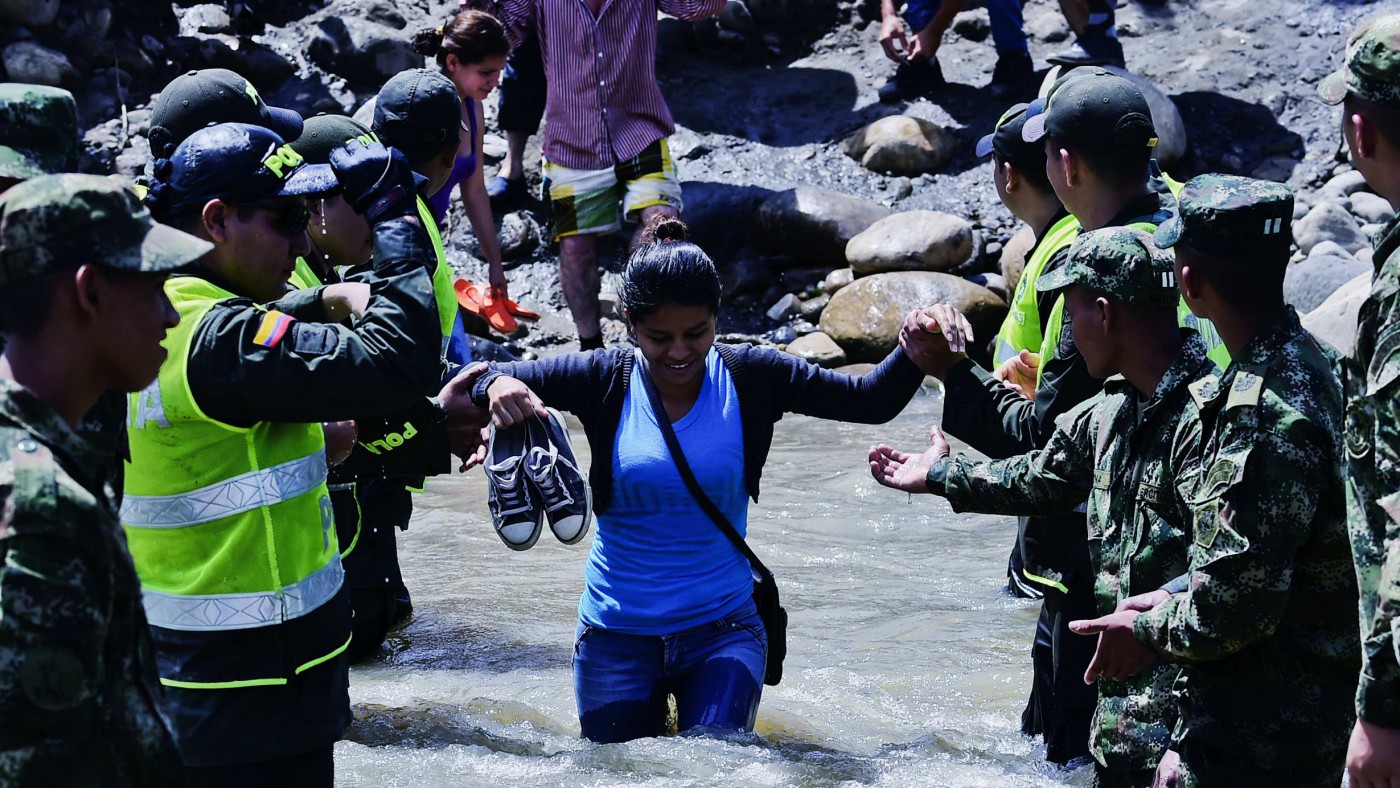It’s all been kicking off in Venezuela this week. President Maduro announced on Monday that he was continuing to ramp up the anti-smuggling drive along the Colombian border. The “state of emergency” he called in August has meant deporting thousands of Colombians, as well as stationing over two thousand troops along the border in Tachira. According to the Guardian, “Nearly 20,000 other Colombians, some of whom have lived in Venezuela for years, have returned voluntarily, fearing reprisals as reports spread about security forces uprooting migrants and earmarking their homes for demolition.”
The situation is both tragic and politically disturbing. Venezuelans will head to the polls in December, and Maduro has the right to maintain the state of emergency for 120 days. That means violence and disruption will continue to destabilise a state which just happens to be one of the key opposition strongholds.
But let’s excuse Maduro of this Machiavellian political manoeuvring for a moment and assume he is sincere in trying to tackle smuggling. As Business Insider makes clear, smuggling is a genuine problem: “Organized smuggling groups also operate in the area, buying goods in Venezuela to resell them in Colombia, exacerbating shortages in crisis-hit Venezuela.”
What are these goods that are so lucrative as to be worthy of organised crime? Are gangs smuggling heroin or cocaine? Weapons? Child prostitutes? No. The key goods being smuggled into Colombia are commodities like petrol and flour, which are subsidised and kept at artificially low prices in Venezuela.
Where else in the world would it be worth the costs and risks of smuggling just to transport flour? Maybe somewhere in a famine-stricken sub-Saharan country, but Colombia isn’t facing nationwide starvation. So why is the Colombian border such a hotspot? Simple. Prices in Venezuela are far too low, meaning there is real profit to be made transporting basic goods somewhere they can be sold at their market value. And my guess is that anyone with flour or petrol to spare would much rather sell it on the black market to a smuggler than via the official channels at a loss. It’s no wonder Venezuelans are facing acute shortages of basic goods.
So Maduro is using state-sanctioned violence to displace thousands of people, in order to address a problem the Venezuelan state created for itself. And if he manages to destabilise his political opponents by doing so, so much the better.
But no one in the UK this week is really watching Venezuela. When our attention has been drawn away from the horror of the migrant crisis, we’ve been fixated on the Labour leadership election, wondering if Jeremy Corbyn will be opposition leader by Monday morning. And the bookies’ favourite has this to say on Latin America’s socialist enclave:
“Venezuela is seriously conquering poverty by emphatically rejecting the Neo Liberal policies of the world’s financial institutions.
Success for radical policies in Venezuela is being achieved by providing for the poorest, liberating resources, but above all by popular education and involvement.”
That was in 2009, while Chavez was still President. But Corbyn’s views in June 2015 are the same:
“When we celebrate, and it is a cause for celebration, the achievements of Venezuela, in jobs, in housing , in health, in education, but above all its role in the whole world as a completely different place, then we do that because we recognise what they have achieved.”
If Labour members do indeed elect Corbyn, the party will be left with a leader who not only believes in the concept and ideals of socialism, but continues to support a regime so corrupt and tyrannical that troops have been sent in to stop people trading in basic goods like flour, which in any moderately developed country would not even be worth smuggling.
Will Corbyn speak out about the injustices Maduro’s government is inflicting on the Venezuelan people, and how Chavez’s socialist policies are responsible for the crisis? I doubt it. It seems ‘telling it like it is’ just doesn’t apply to Venezuela.


